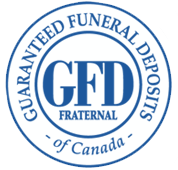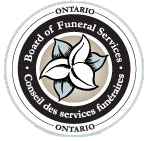When Death Occurs
The loss of a loved one can leave us feeling emotional and overwhelmed, regardless of whether the death was sudden or expected. No amount of preparation can fully prepare you for the loss of a loved one. In this difficult time, even the most basic decisions can seem overwhelming. With this in mind, we have provided a basic outline of some of the things that need to be taken care of.
When a Death Occurs at Home:
If the person was not under hospice care, the police need to be notified. The police will come to the home, and they will place a call to the coroner. The coroner will come, and determine if any further action is necessary. The coroner must release the body before a funeral home can do anything. If the person was under hospice care, contact the hospice representative. They will instruct you on the proper procedures to follow.
When a Death Occurs at a Hospital or Nursing Home:
If you are not present at the time your loved one dies, the staff of the facility will notify you that the death has occurred.
Informing a Funeral Director:
Once everything has been cleared with the proper authorities, the next call you place should be to a funeral home. They have funeral directors on-call who will be in contact with you about what will happen next.
Meeting a Funeral Director:
You should meet with a funeral director within 24 hours of a death to begin to make final arrangements for your loved one. There are many details and arrangements to be taken care of, and this can seem like a daunting task. The funeral director will work with you to make sure that all of these details and arrangements are taken care of.
Making Arrangements:
Some information that the funeral director will need to complete required paperwork includes:
- Full Name and Address
- Marital Status
- Race/Ethnicity
- Date and City of Birth
- Highest Level of Education
- Parent's Names & Place of Birth (including Mother's Maiden Name)
- Name of Spouse (if married or widowed)
- Occupation and Employer
If no pre-planning has been done, necessary arrangements need to be made for the funeral service. These include:
- Scheduling the location, date, and time of the visitation and funeral service
- Selecting burial or cremation
- Choosing Funeral Products
- Arranging a cemetery plot
- Preparing an obituary notice
- Scheduling transportation arrangements
A funeral director will guide you through all of these steps to create a funeral that celebrates the life of your loved one.








